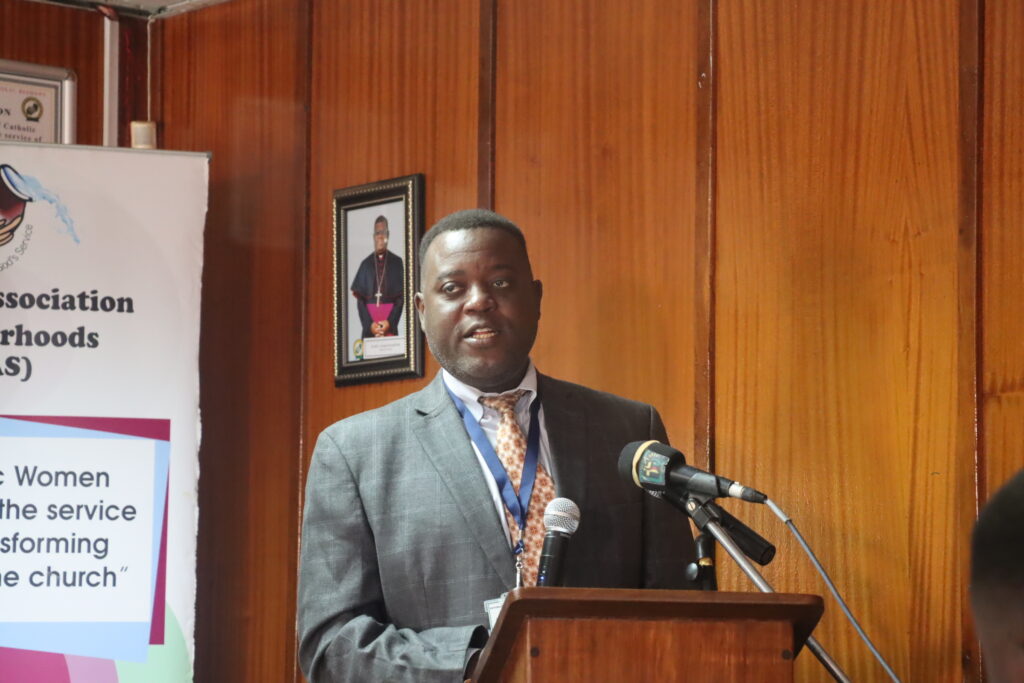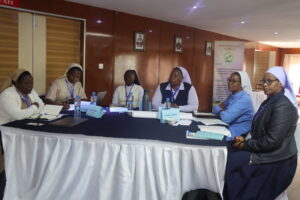AMECEA/CCC: Zambia Government Prioritizes Adoption as Permanent Solution for Children’s Well-being

Zambia, Mr. Kelvin Samiselo, the senior social welfare officer in Zambian
Sr. Henriette Anne FSSA
Following the ongoing convening on Catholic Care for Children (CCC) in Lusaka, Zambia, Mr. Kelvin Samiselo, the senior social welfare officer in Zambian, shared with the participants drawn from the Eastern Africa region that amidst the different laws enacted by the government to address the rights and well-being of children, adoption emerged as a preferred solution due to its permanence and stability.
“Adoption is very much accessible. Even though there are a few features that have come up within the new act, we feel a child should belong to a permanent home,” the government representative underscored noting that there are other alternative care services but adoption seem to be more permanent.
Mr. Samiselo disclosed that the laws enacted by the government include the Juveniles Act, the Adoption Act of 1954, and the probation of offenders Act.
In his address on Tuesday, August 29, at Kapingila house in Lusaka, Zambia, Mr. Samiselo explained that the Juvenile Act focuses on children coming through conflict development with the law, the Adoption Act of 1954 deals with the issues of both international and local adoption while the probation of offenders Act deals with children who are in conflict with the law.
He narrated further that the government has also introduced the Children’s Code Act, which unites the various aspects of children’s welfare, including adoption, child support centers, and reformatory centers.
“As of 9th August 2022, the government enacted the Children Code Act, all issues to do with children that are supposed to be taken to child support centers or reformatory centers, issues to do with adoption both locally and internationally are now in one document called Children’s Code Act”.
In his presentation, the government official noted that one of the most notable changes brought about by the Children’s Code Act is the amendment of the age of criminal responsibility, lowered from 14 years to 12 years which ensures that “children below the age of 12 cannot be considered responsible for any offense and are seen as innocent.”
Amidst all the enacted laws, Mr. Samiselo stressed, adoption is the government’s top priority since as a country the people embrace the notion that a child deserves not just a home, but a permanent place to flourish.
Based on concern of child care the official narrated, the government has taken officers for service training to handle matters pertaining to children, such as children in families, issues of child marriage, and violence against children.
Recognizing that collaboration can lead to greater progress, the government representative called upon the participants to exchange ideas and work together even if laws are unique to each country.


